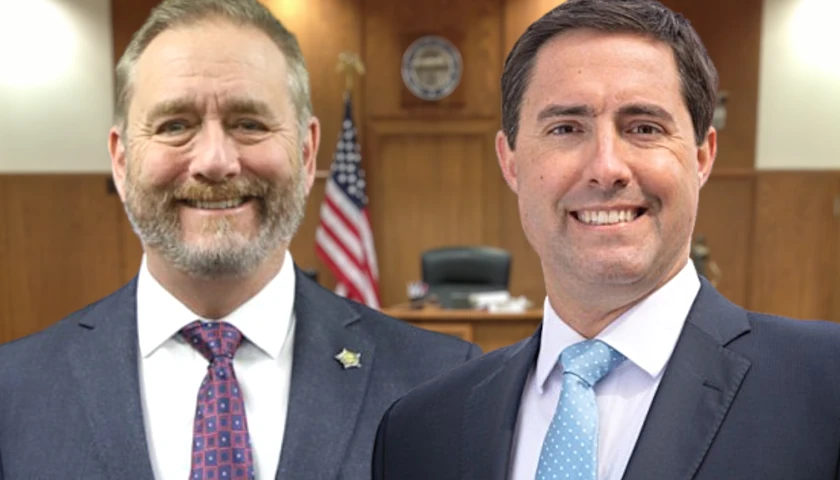The General Assembly approved a Republican-backed bill aimed to require governmental evidence-retention entities to test rape kits when investigating human trafficking cases through the criminal justice reform package that passed last week.
House Bill (HB) 390 sponsored by state Representatives Marilyn John (R-Shelby) and Laura Lanese (R-Grove City) applies to the current state law for preserving and cataloging evidence of sexual assault examination (SAE) kits for victims and survivors of human trafficking.
According to John, currently, SAE kits are not required to be tested when it comes to the investigation or evidence that human trafficking has occurred. So oftentimes, the Bureau of Criminal Identification and Investigation (BCI) does not test the SAE kits within the realm of human trafficking. However, law enforcement requires the testing of SAE kits for murder, voluntary or involuntary manslaughter, rape (including attempted rape), vehicular homicide or manslaughter, sexual battery, and gross sexual imposition.
“Our goal is to stress to our law enforcement partners and our communities that Ohio is dedicated to fighting this crime. We want to ensure that human trafficking victims are able to receive the proper care, justice, and attention that they deserve and desperately need,” John said.
The legislation aims to add trafficking in persons cases to the list of required crimes for testing and submission to a governmental evidence-retention entity for DNA analysis of the contents of the kit if an examiner has not previously performed a DNA analysis on the kit.
The bill will also require law enforcement agencies to review all records and reports pertaining to investigations of any trafficking in persons cases as soon as possible after the effective date of this legislation.
According to the executive director of the Ohio Alliance to End Sexual Violence (OAESV) Rosa Beltre, victims of human trafficking are victims of crime so law enforcement should test them the same as any other crime.
“Why are you not included if you are a victim? You are a victim of a crime,” Beltre said.
According to Attorney General Dave Yost, the other offenses have existed a lot longer and trafficking in persons is a relatively new statute.
“This is modernizing the existing guidelines to keep up with the way the world is changing,” Yost said.
The first all-encompassing federal law regarding trafficking was the Trafficking Victims Protection Act of 2000. The law defined trafficking in persons as “a commercial sex act is induced by force, fraud, or coercion, or in which the person induced to perform such an act has not attained 18 years of age; the recruitment, harboring, transportation, provision, or obtaining of a person for labor or services, through the use of force, fraud or coercion for the purpose of subjection to involuntary servitude, peonage, debt bondage, or slavery.”
Former Governor John Kasich signed HB 262 known as the Ohio Human Trafficking Law in 2012.
In 2019 Yost created the Human Tracking Initiative (HTI) to combat labor and sex trafficking in the state. Beltre sits on the Human Trafficking Taskforce.
According to Yost, this could provide law enforcement with an additional resource to charge traffickers.
“It’s going to increase the evidence that’s available for law enforcement to be able to prove these cases and hold the bad guys accountable,” Yost said.
According to John’s testimony, “rape is a felony of the first degree and carries 3-11 years in prison. Trafficking in persons is a felony of the first degree but carries a sentence between 10-15 years. Both are classified as sexually oriented offenses, yet only one requires law enforcement to submit kits for testing once they obtain custody of them.”
The bill also requires the attorney general to conduct training programs for law enforcement officers who handle rape kits.
Law enforcement will keep the evidence for 30 years if the crime is unsolved.
According to World Population Review, Ohio has already reported 310 human trafficking cases this year.
As part of Senate Bill (SB) 288, the legislation now heads to the governor’s desk for signature.
– – –
Hannah Poling is a lead reporter at The Ohio Star and The Star News Network. Follow Hannah on Twitter @HannahPoling1. Email tips to [email protected].
Photo “Marilyn John” by Marilyn John. Photo “Laura Lanese” by Ohio Statehouse. Background Photo “Ohio Statehouse” by Becker1999. CC BY 2.0.





